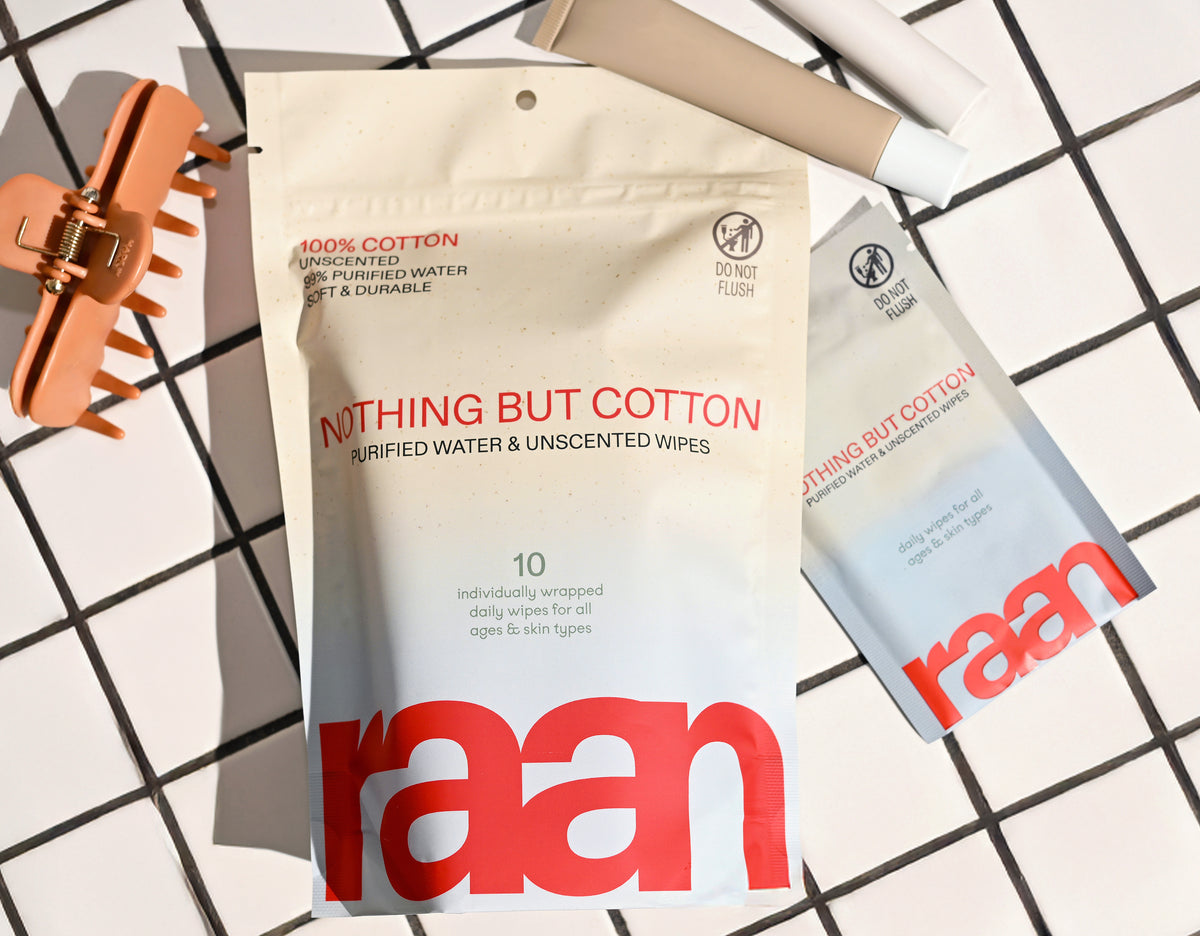Key Takeaways
- Unscented wipes are essential for individuals with allergies or sensitive skin to avoid irritation.
- These wipes eliminate the risk of exposure to hidden fragrance ingredients that can trigger reactions.
- Choosing unscented products helps create a safe environment for sensitive skin to heal and breathe.
- Allergy-prone skin benefits from simpler, fragrance-free skincare essentials.
Table of Contents
- Why "Unscented" Matters for Anyone with Allergies or Sensitive Skin
- What Are Unscented Wipes, and Why Are They Essential?
- The Problem with Fragrance (and Other Uninvited Ingredients)
- What "Hypoallergenic" and "Dermatologist-Tested" Really Mean
- Best Unscented Wipes for Allergy-Prone Skin
- Ingredient List Decoded: How to Read Wipes Like a Pro
- How to Use Unscented Wipes Safely
- Why Material and Ingredient Integrity Make All the Difference
Why "Unscented" Matters for Anyone with Allergies or Sensitive Skin
When your skin reacts to everything from laundry detergent to face wash, the last thing you need is mystery ingredients hiding in your daily essentials. Unscented wipes for allergy prone skin aren't just about avoiding perfume , they're about creating a safe space for sensitive skin to breathe.
Whether you're a new mom navigating postpartum skin changes, dealing with eczema flare-ups, or simply tired of red, irritated patches after using conventional wipes, the solution isn't complicated. It's about choosing products that do one job well: clean gently without causing chaos.
Quick Answer
The best unscented wipes for allergy-prone skin contain minimal, recognizable ingredients , think purified water, organic aloe, and food-grade preservatives. Skip anything with synthetic fragrances, plastic fibers, or vague "natural scent" claims. Look for EWG Verified certifications and unbleached, 100% cotton materials that won't irritate reactive skin.
What Are Unscented Wipes, and Why Are They Essential?

Unscented wipes mean no added fragrance , but that's just the beginning. For truly allergy-friendly options, you want wipes free from masking agents, synthetic preservatives, and unnecessary additives that can trigger reactions.
These aren't just for babies. Adults dealing with hormonal shifts, rosacea, or contact dermatitis need the same gentle approach. Real unscented wipes work for diaper changes, post-workout freshening, and quick face cleanups without the sting of regret.
The Problem with Fragrance (and Other Uninvited Ingredients)
Even that "gentle baby scent" can be a nightmare for reactive skin. Synthetic fragrances are among the top allergens in personal care products, but they're not the only culprits hiding in conventional wipes.
Here's what else can trigger reactions:
- Masking agents: Used to cover up chemical odors, often unlisted
- Parabens and phthalates: Preservatives linked to hormonal disruption
- Bleach and chlorine: Used to whiten materials, leaving harsh residues
- Plastic fibers: Polyester and polypropylene that can scratch sensitive skin
Marketing gotcha: "Unscented" doesn't guarantee fragrance-free. Some brands add masking fragrances to hide chemical smells, then call the product unscented. Always check the full ingredient list.
What "Hypoallergenic" and "Dermatologist-Tested" Really Mean

Hypoallergenic means formulated to minimize allergy risk , but it's not allergy-proof. There's no FDA regulation of this term, so brands can use it freely.
Dermatologist-tested sounds reassuring, but it only means a dermatologist looked at the product. It doesn't guarantee zero reactions or ongoing safety monitoring.
What actually matters: Third-party certifications like EWG Verified, which requires rigorous ingredient screening against a database of known allergens and irritants. These certifications mean independent experts reviewed every component for safety.
Best Unscented Wipes for Allergy-Prone Skin
Raan Cotton Wipes - Best Overall
Best for: Anyone with sensitive or allergy-prone skin seeking maximum transparency
Rating: 5/5 stars
These unscented wipes for allergy prone skin set a new standard with unbleached, 100% cotton and just five EWG-verified ingredients. No plastic fibers, synthetic fragrances, or mystery preservatives , just purified water, organic aloe, food-grade preservatives, and gentle pH balancers.
For more options, see our best wipes guide for sensitive and allergy-prone skin.
Ingredient List Decoded: How to Read Wipes Like a Pro

Reading wipe ingredients doesn't require a chemistry degree , just know what to look for. Start with the basics: shorter ingredient lists typically mean fewer potential irritants.
Here's your step-by-step approach:
- Scan for water first: It should be the primary ingredient (purified or distilled)
- Check preservatives: Food-grade options like sodium benzoate and potassium sorbate are gentler than synthetic alternatives
- Look for skin soothers: Organic aloe, chamomile, or vitamin E indicate thoughtful formulation
- Verify what's missing: No plastic fibers, synthetic fragrances, bleach, parabens, or alcohol
Pro tip: If you can't pronounce half the ingredients or the list runs longer than your grocery receipt, keep looking. Quality wipes prove that less really is more.
How to Use Unscented Wipes Safely
Even the gentlest wipes need proper use for maximum safety. Always start with clean hands when removing wipes from the pack , this prevents contamination that could cause reactions.
For allergy-prone skin, try a patch test first. Apply a small amount to your inner wrist or behind your ear, then wait 24 hours. No redness or irritation? You're good to go.
Storage matters too: Keep wipes away from direct heat and sunlight, and always reseal the pack to preserve moisture and prevent bacterial growth.
Why Material and Ingredient Integrity Make All the Difference
The science of simplicity isn't just marketing speak , it's how you actually protect sensitive skin. When brands strip away unnecessary additives and focus on proven, gentle ingredients, they eliminate the guesswork that leads to reactions.
Unbleached, 100% cotton wipes with minimal, transparent formulations aren't just safer , they're more effective. Your skin gets what it needs without the irritants it doesn't.
Real transparency means brands tell you exactly what's in their products, where ingredients come from, and why each one matters. No vague claims, no hidden masking agents, no mystery preservatives.
This approach transforms everyday care from a potential minefield into something you can trust completely , whether you're caring for a newborn, managing eczema, or simply want products that work without compromise. For more on the science behind wipes and allergies, see this external resource.





